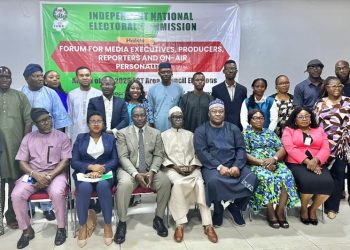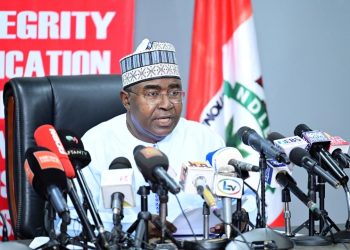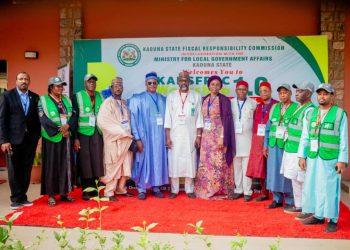By Mnena Iyorkegh, Abuja
The United Nations has called on the media and other stakeholders to renew commitments to promoting women’s political and economic empowerment to enhance gender-responsive governance. The UN Women Country Representative to Nigeria and ECOWAS, Ms. Beatrice Eyong, made the call during a Media Forum on promoting gender equality and women’s empowerment in Abuja, Nigeria’s capital.
While decrying the poor representation of women in leadership positions, Ms. Eyong emphasized the pivotal role of the media in instilling change in society, which is fundamental for advancing gender equality and women’s empowerment.
“The representation of women in Nigeria’s parliament and other leadership positions are challenges that we must all join hands together to surmount. The question is: How much is being done by the media to advocate for women’s economic empowerment and women’s representation in appointed and elected positions in Nigeria? What can the media do differently to improve the chances of more women joining politics and winning in the next elections? These challenges we must all respond to as women and gender champions in the media sector,” she said.
Ms. Eyong noted that one in every ten women lives in extreme poverty, and projections indicate that 342.4 million women and girls will not have moved out of extreme poverty by 2030 unless there is a shift in current trends.
“The media is a tool that has been used over time in educating society and accelerating behavioral change, which is a fundamental prerequisite for advancing gender equality and women’s empowerment. We need to change the mindsets of communities where gender inequality is entrenched, women’s voices are subdued, and the rights and aspirations of young girls are violated with impunity. This is where you, as media practitioners and gender advocates, come in. While significant progress has been made in advancing women’s economic empowerment through deliberate inclusive strategies, policies, and programs, many challenges at the global, national, and subnational levels still abound,” she added.
Also speaking, UN Women’s Programs Specialist, Governance and Participation in Public Life (GPPL), Mr. Zephaniah Aura, while charging the media to continue amplifying women’s voices ahead of the 2027 election to improve their participation in politics, also said UN Women will continue with efforts towards investing in the empowerment of women and girls in Nigeria.
According to the Executive Director of the International Press Centre (IPC), amplifying women’s voices in the media landscape requires more dedication, commitment, and courage.
Media should continue to highlight issues affecting women on their platforms to bring about the desired change targeted at gender equality, women empowerment, and political representation.
Media participants at the forum renewed their commitment to do better in highlighting issues affecting women and girls, as well as amplifying their voices.
Female politicians were urged to always speak out, be more vocal, and make themselves available to the media for interviews that would improve their political careers.
Other highlights of the event include a panel discussion on “The Road to the 2027 General Elections: Improving Women’s Representation through Media Interventions.”













